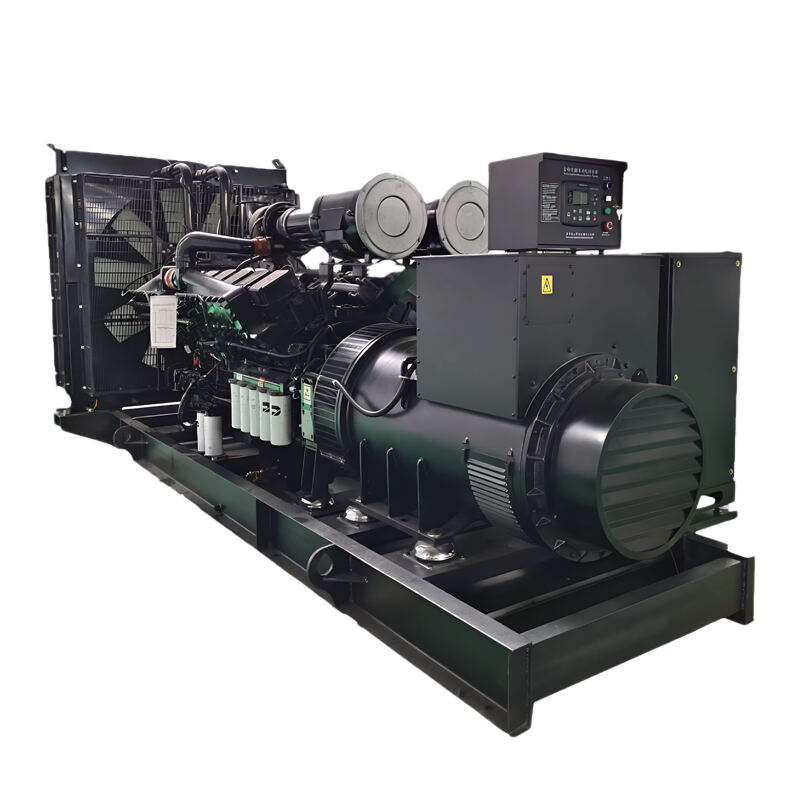Understanding Home Backup Power Solutions
When it comes to ensuring your home's energy security, a power generator serves as your ultimate safeguard against unexpected outages and emergencies. Whether you live in an area prone to natural disasters or simply want to maintain uninterrupted power supply, selecting the right power generator can make all the difference between comfort and chaos during critical situations.
Modern power generators have evolved significantly, offering various fuel options, power capacities, and smart features that cater to diverse household needs. As we delve deeper into this comprehensive guide, you'll discover exactly how to evaluate your requirements and make an informed decision that provides lasting value for your home.
Essential Factors in Generator Selection
Power Output Requirements
The first step in choosing a power generator involves calculating your home's power needs. Start by listing all essential appliances and their wattage requirements. Critical items typically include refrigerators, heating systems, lighting, and medical equipment. Remember to account for both starting watts (the power needed to start an appliance) and running watts (the power needed to keep it running).
A medium-sized home typically requires between 5,000 to 7,500 watts to power essential items. However, if you plan to run multiple high-demand appliances simultaneously or want whole-house coverage, you might need a power generator with 10,000 watts or more. It's always better to have slightly more capacity than you think you'll need rather than discovering your generator is undersized during an emergency.
Fuel Type Considerations
Power generators run on various fuel types, each with distinct advantages. Natural gas generators offer convenient, unlimited fuel supply when connected to your home's gas line. Propane generators provide clean-burning power and long shelf life for fuel storage. Diesel generators are known for their efficiency and durability, while gasoline generators are typically more affordable and widely available.
Consider your local fuel availability, storage capabilities, and environmental preferences when selecting fuel type. For instance, if your area frequently experiences natural disasters, a dual-fuel power generator might offer the best reliability by providing fuel flexibility when supplies are limited.

Advanced Features and Technology
Smart Monitoring Systems
Today's power generators come equipped with sophisticated monitoring capabilities that transform how we manage backup power. Smart features include remote monitoring through mobile apps, automated maintenance alerts, and real-time performance metrics. These technologies help optimize generator operation and prevent potential issues before they become problems.
Look for models with automatic voltage regulation (AVR) to protect sensitive electronics and equipment. Modern power generators also offer features like LCD displays showing runtime remaining, fuel levels, and maintenance schedules, making it easier to ensure your system is always ready when needed.
Transfer Switch Options
A critical component of any home power generator system is the transfer switch. Automatic transfer switches (ATS) provide seamless power transition during outages, while manual transfer switches offer a more economical solution. The choice between these options affects both convenience and initial installation costs.
Professional installation of a transfer switch is essential for safety and code compliance. This component ensures your power generator connects properly to your home's electrical system while preventing dangerous backfeeding into utility lines.
Installation and Maintenance Requirements
Location Planning
Proper placement of your power generator significantly impacts its performance and safety. The unit should be installed on a level surface, typically on a concrete pad, and positioned away from doors, windows, and vents to prevent exhaust fumes from entering your home. Consider factors like noise levels, accessibility for maintenance, and local building codes when choosing the installation location.
Weather protection is another crucial aspect of location planning. While most generators are built for outdoor use, additional sheltering from extreme elements can extend equipment life and ensure reliable operation when you need it most.
Maintenance Schedules
Regular maintenance ensures your power generator remains reliable and operates efficiently. Essential maintenance tasks include oil changes, filter replacements, and fuel system cleaning. Create a maintenance schedule based on your generator's usage patterns and manufacturer recommendations.
Professional servicing at recommended intervals helps prevent unexpected failures and extends your generator's lifespan. Many modern units feature maintenance reminders and diagnostic systems that simplify upkeep requirements.
Cost Considerations and Long-term Value
Initial Investment Analysis
The upfront cost of a power generator varies significantly based on capacity, features, and brand. While it's tempting to focus solely on purchase price, consider the total cost of ownership, including installation, fuel costs, and maintenance requirements. Higher-quality generators often provide better fuel efficiency and reliability, resulting in lower long-term costs.
Factor in potential energy savings during peak rate periods and the value of protecting sensitive equipment from power fluctuations. Many homeowners find that their investment in a quality power generator pays for itself through prevented losses and increased property value.
Warranty and Support Services
Comprehensive warranty coverage protects your investment and provides peace of mind. Look for manufacturers offering extended warranty options and strong customer support networks. The availability of local service providers and parts suppliers should influence your decision, as prompt maintenance and repairs are crucial for backup power systems.
Consider service contracts that include regular maintenance and priority emergency support. These agreements can be particularly valuable for ensuring your power generator remains ready for unexpected outages.
Frequently Asked Questions
How long can a home power generator run continuously?
Run time varies by model and fuel type, but most home power generators can operate continuously for 8-24 hours on a single tank of fuel. Natural gas models can run indefinitely as long as the gas supply remains uninterrupted. Regular maintenance intervals typically determine the practical continuous operation period.
What size power generator do I need for my whole house?
For whole-house coverage, calculate your total power requirements by adding the wattage of all appliances you want to run simultaneously. Most homes require 15,000-20,000 watts for complete coverage. However, many households can manage comfortably with 7,000-10,000 watts by prioritizing essential circuits.
How often should I test my power generator?
Experts recommend testing your power generator every month by running it for 20-30 minutes under load. This helps maintain engine components, prevent fuel system issues, and ensure the system will function properly during an actual power outage. Some models feature automatic testing capabilities that simplify this maintenance requirement.
